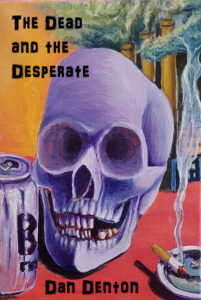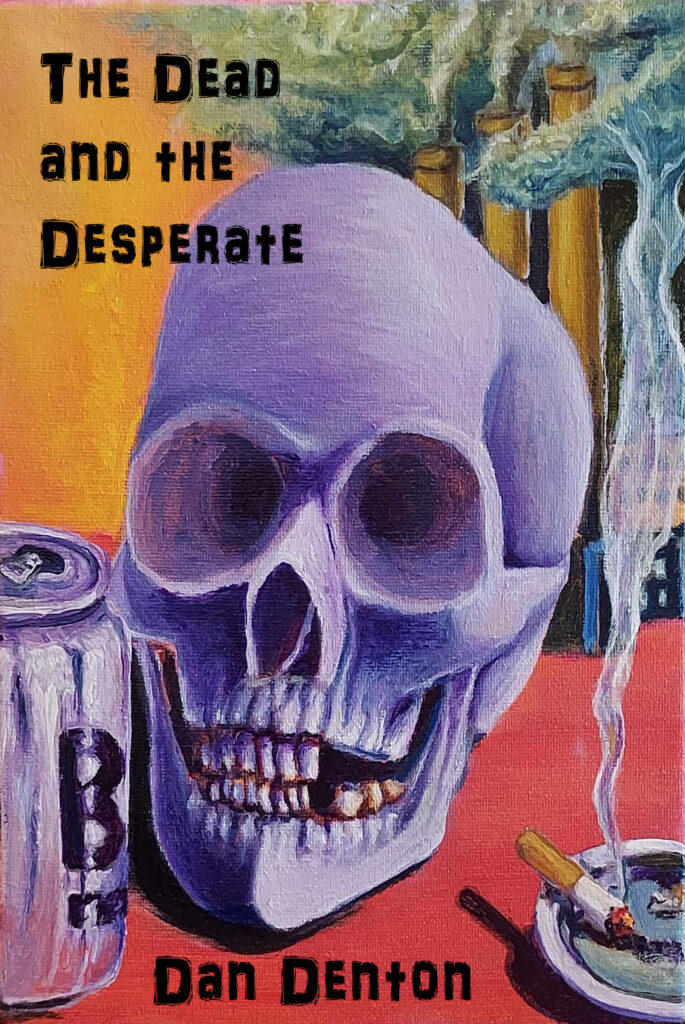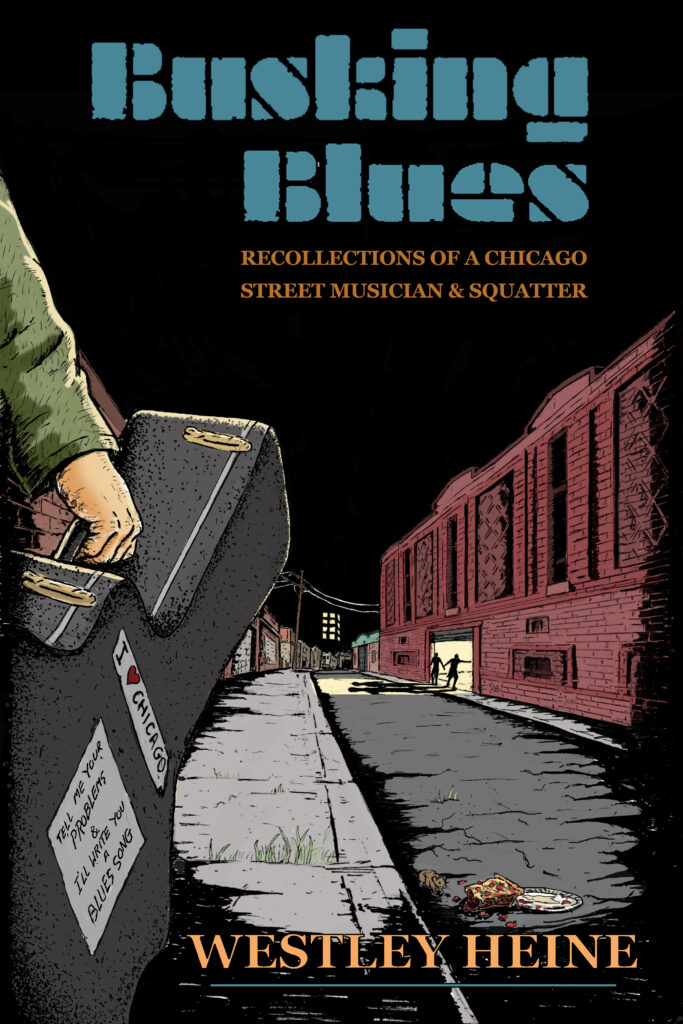 If you have liked Dan Denton’s poetry, or if you liked his first novel, you know what you’re in for. And guess what? There’s even more now: he has grown much as a writer since, and this novel is even more important.
If you have liked Dan Denton’s poetry, or if you liked his first novel, you know what you’re in for. And guess what? There’s even more now: he has grown much as a writer since, and this novel is even more important.
You might think, as you begin to read Dan Denton’s THE DEAD AND THE DESPERATE, that it’s going to be some blend of Charles Bukowski’s WOMEN and POST OFFICE, just set in a factory, and if so, you would be wrong — stick with it: he has his own voice and it asserts itself more and more as you read. Fans of such novels of Bukowski will find much to like here, sure, but there’s not much more of a Bukowski influence really than on any other American indie / small press novelist writing for, and of, the working-class, the middle-class, the blue-collar, the bottom classes, the backbone of the real America.
Denton’s writing is honest, raw, unfiltered — it’s an authentic voice, much like a documentary before it’s cut down to an 80-90 minute run-time so theaters can show the maximum number of showings per evening for maximizing their profits. There’s nothing on the cutting room floor here, so to speak. There is nothing that Denton leaves out in the depiction of his main character’s life — the drug addictions, alcoholism, the aimlessness, mental health struggles, a humor prone to ill timed sarcasm, and the sincere but hindered idealism.
He is honest with himself, and knows what he is, and what he could be. But this is far from a trauma dump: this character knows what has caused his life to be what it is. He knows what he has done to make it this way. And he is well aware of what others have done to make his life as it is, and the lives of his co-workers, and his blue collar brethren and sistren across America — it’s those powers who were, and those in power now, perpetuating a cold opportunistic machine that has been woven into the fabric of his nation.
He is aware of his place in the Machiavellian and Malthusian manipulations in the decades that preceded him, and the long half-life of Reaganomics. And equally aware of the falsity of the wars against alcohol and drugs, and in that the warring on marginalized peoples, and ‘bottom’ classes to do so, all while labyrinthine corporate institutions have been treating generations of workers so harshly no one can function for long without some kind of self-medication — ‘mother’s little helper’, soft drugs, hard drugs, alcohol, gambling, religion as opiate, whatever it takes to keep their cog turning in the machinations of the machine.
One of the strongest and most important exploration’s in Denton’s story is how the dehumanizing nature of the only work he feels suited for, in turn affects the worker when he gets home. Work directly affects home life and relationships more than anything else he’s dealing with (or not dealing with).
An unexpected pregnancy leads to an attempt to create a relationship with no real foundation, and a marriage with a lot going against it only weeks in. He does the things he feels he has to, and work as hard as he may, they always seem to be weeks behind the bills. He has mental health issues and addictions, and there are many interesting characters around him that feed into his addictive nature, because of course they have people in their lives that do same. Oppressive economic and social factors play their part too. Trips to a used bookstore provide a reprieve from a lot that goes wrong.
While his character isn’t in the best state to be in a relationship, what with addictions and mental health issues, and a marriage that neither he nor his wife were really ready for, Denton’s story very clearly shows how there are many negative external forces that come to bear on relationships. Dehumanizing work makes for dehumanized workers. Denton’s character knows this in his heart and mind and struggles to fight it on both fronts. Others around him fight it too, but many don’t. His in-laws seem to have bought into it and want him to sell his soul to it and be a good boy.
His is a life that many live, and is rarely represented, never made into made for-TV movies of the week back in the day, and never likely to be made into a reality show now, and rarely a docu-series. An entire class of people actively struggle day in day out, without their everyday reality known. Well, Denton’s book is part of that much needed reality check. And everybody deserves to know. Everybody needs a voice and THE DEAD AND THE DESPERATE is a part of that which gives voice.
Dan Denton’s THE DEAD AND THE DESPERATE could well do for factory work what Upton Sinclair’s THE JUNGLE did for the meat industry. If people read the book they will wake up. If they wake up they have the opportunity to do something. THE DEAD AND THE DESPERATE presents harsh truths that should not and can not be ignored. Changes can be made with enough will. We have to ask ourselves if we want to live, or to merely exist.
David Alec Knight is the author of Leper Mosh (Cajun Mutt Press)



